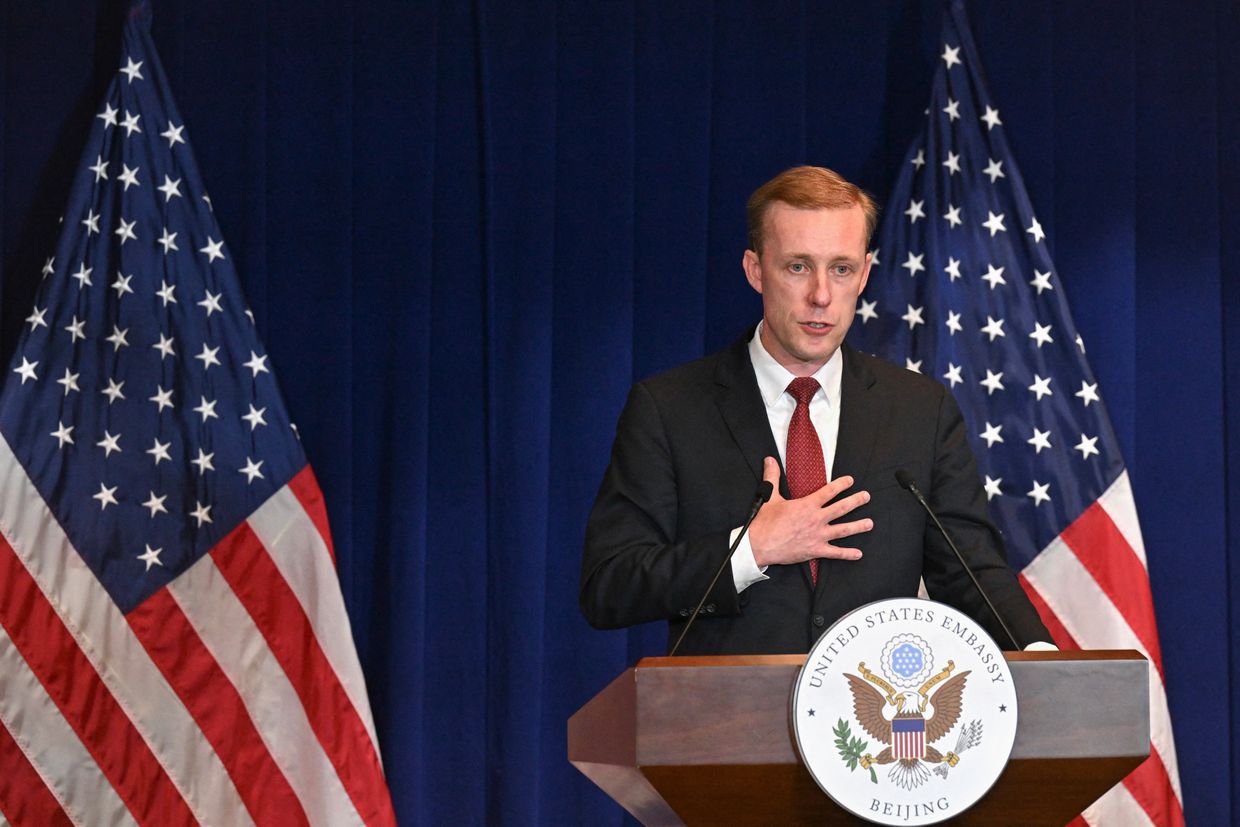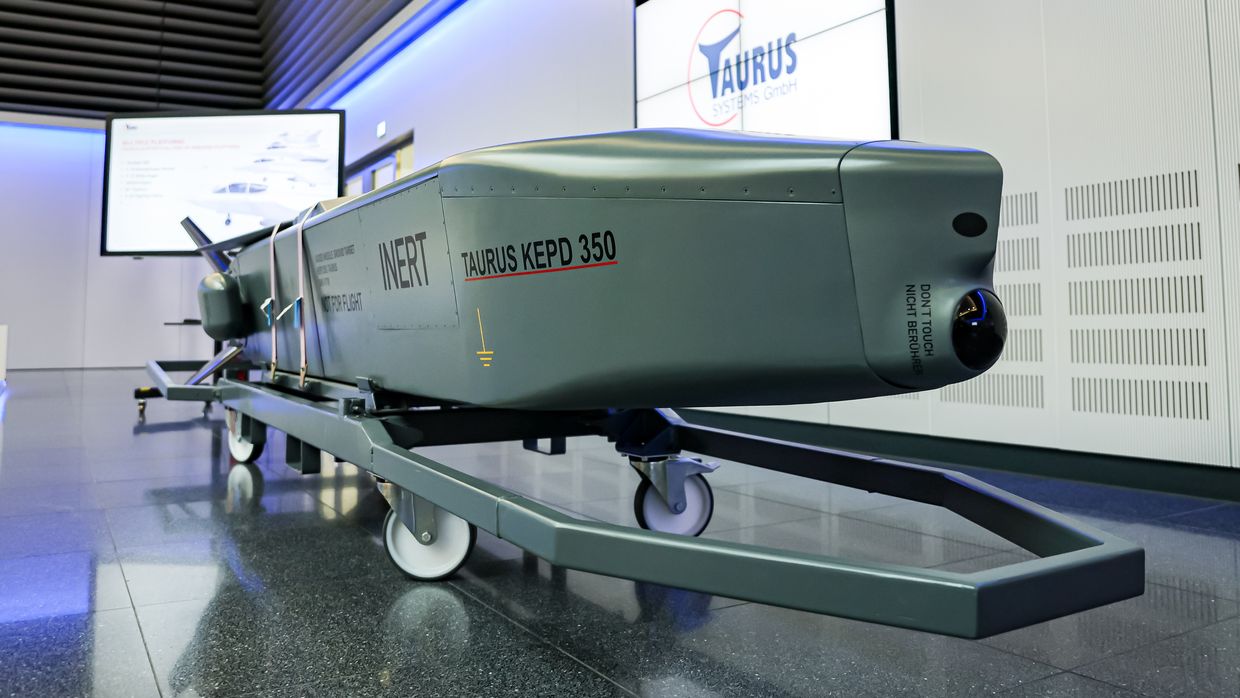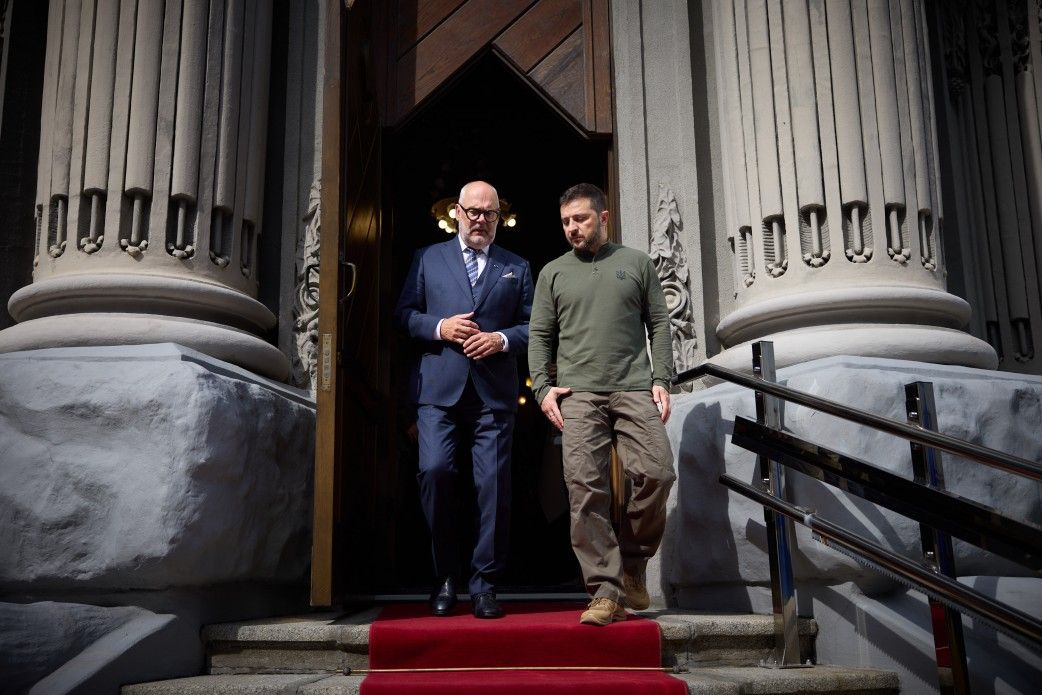‘It’s personal’ — Why Germany still refuses to send Taurus missiles to Ukraine

While Washington and London are facing pressure to allow Ukraine to strike targets deep inside Russia using the Western-made missiles already in the country, Berlin declines to even provide such missiles.
“Germany has made a clear decision about what we will do and what we will not do. This decision will not change,” Scholz said on Sept. 13, remaining adamant in his refusal to provide the country’s Taurus long-range missiles to Ukraine.
His remarks came after U.S. President Joe Biden and U.K. Prime Minister Keir Starmer stopped short of lifting restrictions on using Western-supplied long-range weapons on Russian soil during their meeting in Washington.
In the spring, Washington confirmed that it had begun providing Ukraine with long-range Army Tactical Missile Systems (ATACMS). Kyiv had previously received missiles that could travel up to 160 kilometers, and the new batch consisted of advanced ones with a range of up to 300 kilometers.
But Berlin's transfer of Taurus missiles did not follow.
Prior, Germany followed the U.S. lead in handing over the first Patriot air defense system in early 2023 and the long-anticipated battle tanks.
When Kyiv launched a surprise incursion into Russia’s Kursk Oblast, the operation received endorsement from Berlin. Germany’s Defense Ministry said Ukraine is “free to choose” the weapons to use inside Russia for self-defense in compliance with international law.
Yet, Berlin continues to hold off Ukrainian requests to provide the last piece of the puzzle, the missiles that can target the Russian military in the rear.

"A nightmare scenario for Scholz is that Ukraine would use Taurus to strike politically sensitive targets inside Russia. Scholz fears that this could escalate the war and throw Germany into direct hostilities with Russia," Fabian Hoffmann, doctoral research fellow at the University of Oslo, who specializes in missile technology, told the Kyiv Independent earlier this spring.
“Fundamentally, this means that Scholz is restrained by a lack of political will, which stems from a lack of trust in Ukrainian leadership to not break any promises.”
A political decision
President Volodymyr Zelensky suggested that Germany’s refusal to provide Ukraine with long-range missiles is linked to Russian President Vladimir Putin's nuclear saber-rattling.
“As I understand it, the chancellor says that Germany is not a nuclear state and that this (Taurus missiles) is the most powerful weapon system in Germany,” Ukraine’s president said in an interview with Bild.
In his recent comments, Putin claimed that giving Ukraine the green light to use long-range weapons against targets inside Russia would mean NATO was "at war" with Moscow. Russia has been constantly issuing threats that have failed to materialize.
Designed to hit buried and protected targets, such as command posts and bridges, the Taurus cruise missile can hit targets 500 kilometers away, outmatching the capabilities of other Western long-range systems that Ukraine has in service.
Apart from ATACMS, Ukraine received the British Storm Shadow missiles, along with the French equivalent, the SCALP missiles, which have a range of up to 250 kilometers. The arsenal helped Ukraine hit Russian targets in the occupied territories, including Crimea.
Kyiv has repeatedly promised it would not attack Russian territory with long-range weapons provided by Western allies without official approval. Berlin seems to not care.
Among the reasons Scholz gave for not providing Ukraine with long-range missiles was the alleged inability to use them without the German soldiers' involvement, which was refuted.
“At this point, it has even become what you might call a personal issue of the chancellor,” Jessica Berlin, a senior fellow at the Center for European Policy Analysis (CEPA), said. “There's a personal element involved in the other political considerations. That is not the only driver of the decision, but is certainly playing a role.”
"At this point, it has even become what you might call a personal issue of the chancellor."
According to a German general, who was not authorized to speak to the press, providing the Taurus missiles to Ukraine is solely a political decision, and the German Armed Forces don't object to the decision being made.
Public opinion against Ukraine
A year before the German parliamentary elections, the majority of Germans support Scholz's decision not to provide Ukraine with Taurus missiles.
An April poll by Forsa Institute, requested by the German RTL television channel, showed that only 37% of Germans back the Taurus deliveries to Kyiv, while 56% oppose such a move.
At the same time, according to a February poll by the ZDF TV channel, 62% of Germans favor European countries providing Kyiv with more weapons and ammunition, while 32% oppose it.
Jessica Berlin said that German support for the provision of Taurus has been slipping in the polls, partly due to a lack of decisiveness, clarity, and political leadership. This creates a ripe environment for Russian propaganda and narratives around “escalation,” for which there is no German strategy to counter effectively, according to the expert.
“If the German public understood fully the nature of the situation and the nature of the threat we face from Russia, they would be less fearful of helping Ukraine's self-defense with German hardware, and they would understand that investing in Ukraine's defense is also investing in Germany's defense.”
Christian Mölling, a security expert at the Germany-based Bertelsmann Foundation, told the Kyiv Independent that “people basically have given up on arguing for Taurus.”
















